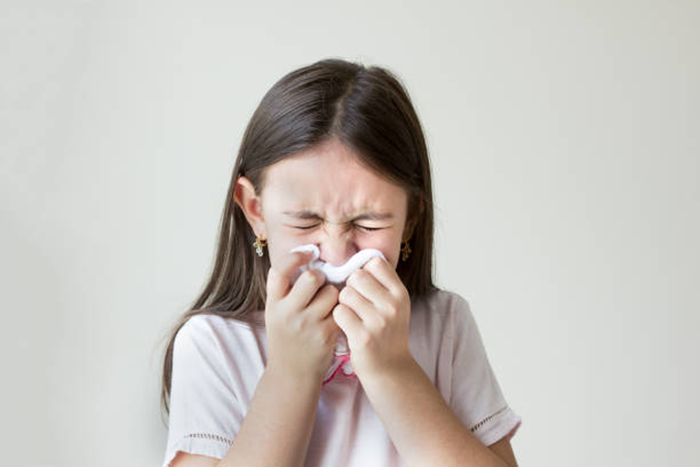
Published on February 22, 2022
Read Time: Two Minutes
Allergies occur when your immune system overreacts to a substance, usually called an allergen. Allergies can be mild or severe, are usually caused by food or environmental factors and are common in both adults and children.
In Missouri, pollen, mold, dust mites and pets (including dogs and cats) are common allergens seen in children. Kids also can be allergic to certain foods, including the following:
- Soybeans
- Peanuts
- Milk
- Wheat
- Eggs
- Fish (bass, flounder and cod)
- Shellfish (crab, crayfish, lobster and shrimp)
- Tree nuts (almonds, walnuts and pecans)
- Sesame seed
Raising a child with allergies can be difficult, but Mary Doellman, DO, an ENT (ear, nose and throat) physician with Phelps Health, offers tips for parents who have children with allergies.
Caring for kids who suffer from allergies depends on the type of allergy they have.
If a child’s allergies seem to be mild and related to a certain season, keeping the child on an allergy medication during that “season” as opposed to “as needed” is preferable. Most medications, especially nasal sprays, take a full month to be effective, according to Dr. Doellman.
Keeping pets out of bedrooms is helpful if children have pet allergies, and using dust mite covers and avoiding carpeting and heavy drapes is beneficial to kids who are allergic to dust mites.
If a child is allergic to pollen, such as grass or trees, give them a bath after they have been exposed to the allergen, Dr. Doellman recommended.
In addition, regular house cleaning can help reduce indoor allergens in the air, like dander and mold. However, cleaning usually does not help symptoms in the long run.
Many kids who are allergic to certain foods can outgrow those allergies.
Dr. Doellman said depending on how severe your child’s reaction is with a food allergy, cooking your kid’s food in designated cookware can help avoid cross contamination. Dr. Doellman also urges parents to read food labels and be aware of different names for allergens.
Children who need epinephrine (EpiPen) should always have that medicine nearby at all times.
Food journals are a good way to help identify food allergens, and children who have food allergies should avoid eating those foods.
For other allergies, if your child’s symptoms are not being controlled, they may qualify for allergy testing.
If you have tried giving your child allergy medicines, and their symptoms aren’t improving, your child may need to see a specialist. ENT (ear, nose and throat) doctors and providers are trained to help identify food and environmental allergies.
Children also can be tested at Phelps Health to see if they are allergic to certain medicines, such as penicillin.
Does Your Child Suffer From Allergies?
Make an appointment with a Phelps Health allergy and ENT (ear, nose and throat) specialist by calling (573) 364-5719.